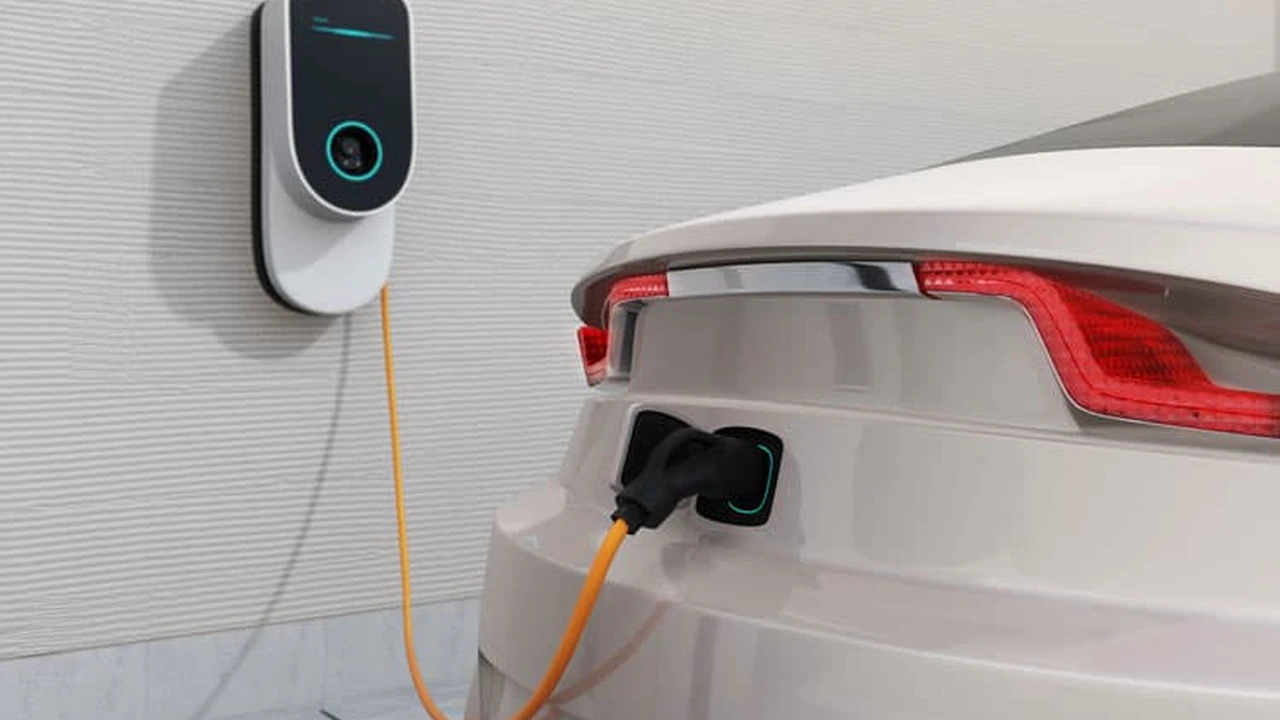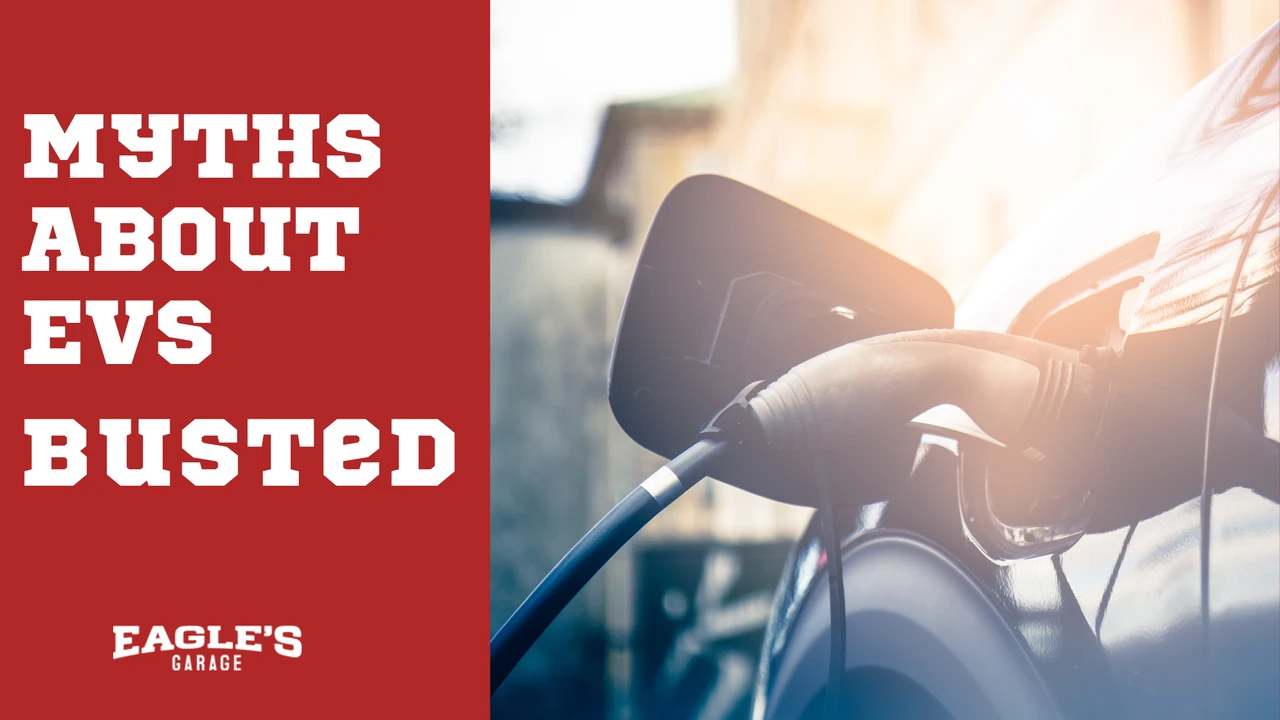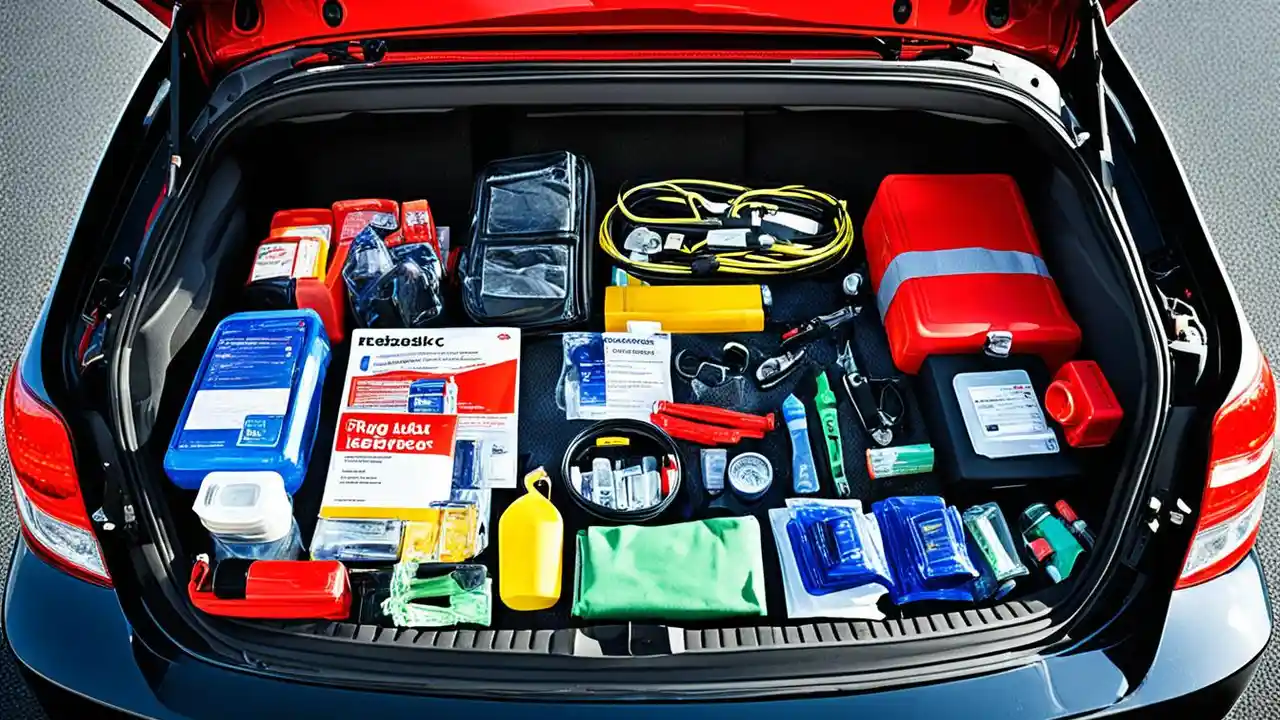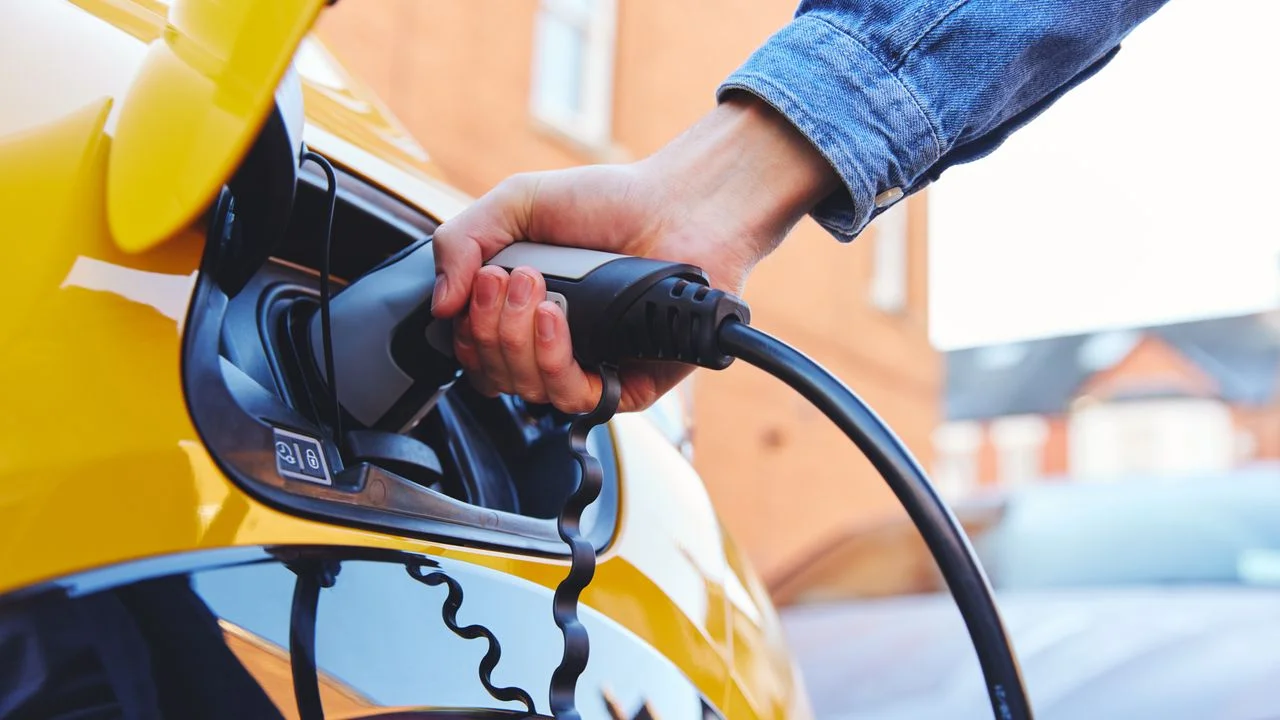Portable EV Chargers: A Buyer's Guide for On-the-Go Charging
Need a portable EV charger for on-the-go charging? This buyer's guide covers everything you need to know. Learn about different types of portable chargers, power levels, and safety features. Stay charged up wherever you go.

What is a Portable EV Charger and Why Do You Need One Portable EV Charger Explained
Okay, so you've got your shiny new electric vehicle, and you're loving the freedom of zipping around without guzzling gas. But what happens when you're not near your home charger or a public charging station? That's where a portable EV charger comes in handy. Think of it as your EV's emergency fuel can, except instead of gas, it's electricity. These chargers are designed to be compact and easy to carry, allowing you to plug into standard outlets and juice up your battery when you're on the road.
Why do you need one? Imagine this: you're visiting family, staying at a hotel without EV charging, or even stuck in a remote location. A portable charger can be a lifesaver, giving you enough charge to get to the nearest charging station or back home. It's peace of mind in a small package.
Different Types of Portable EV Chargers Level 1 vs Level 2 Portable Chargers
Portable EV chargers come in two main flavors: Level 1 and Level 2. Understanding the difference is crucial for choosing the right one for your needs.
Level 1 Portable Chargers
Level 1 chargers are the most basic and come standard with most EVs. They plug into a standard 120V household outlet. The upside? You don't need any special installation. The downside? They're slow. Really slow. You'll typically get around 3-5 miles of range per hour of charging. Great for a trickle charge overnight, but not ideal if you need a quick boost.
Level 2 Portable Chargers
Level 2 chargers are significantly faster. They use a 240V outlet, similar to what your dryer or oven uses. This means you'll need a dedicated 240V circuit and potentially an electrician to install the outlet. However, the charging speed is much faster, typically adding 10-20 miles of range per hour. Level 2 portable chargers are perfect for topping off your battery while visiting friends or family, or for destinations where you'll be parked for several hours.
Power Levels and Charging Speeds Understanding Portable EV Charger Power
Beyond Level 1 and Level 2, the charging speed also depends on the amperage of the charger. Higher amperage means faster charging, but it also requires a higher amperage circuit. Here's a quick rundown:
- Level 1 (120V): Typically 12 amps. Adds about 3-5 miles of range per hour.
- Level 2 (240V, 16 amps): Adds about 10-12 miles of range per hour.
- Level 2 (240V, 32 amps): Adds about 18-20 miles of range per hour.
- Level 2 (240V, 40 amps): Adds about 25-30 miles of range per hour (requires a 50 amp circuit).
Keep in mind that the maximum charging rate is also limited by your car's onboard charger. Check your car's specifications to see its maximum charging capacity.
Safety Features to Look for In Portable EV Chargers Safety First When Choosing a Portable Charger
Safety should be your top priority when choosing a portable EV charger. Look for chargers that are UL listed or ETL certified, meaning they've been tested and meet safety standards. Other important safety features include:
- Overcurrent protection: Prevents the charger from drawing too much current, which could overload the circuit.
- Overvoltage protection: Protects the charger and your car from voltage spikes.
- Over-temperature protection: Shuts down the charger if it gets too hot.
- Ground fault protection: Detects ground faults and immediately shuts down the charger to prevent electric shock.
- Water resistance: Look for chargers with an IP rating (Ingress Protection) that indicates their resistance to water and dust. IP66 is a good rating for outdoor use.
Top Portable EV Charger Recommendations Product Reviews and Comparisons
Alright, let's get to the good stuff. Here are a few portable EV chargers that I recommend, along with their pros, cons, and pricing:
Duosida Level 2 Portable EV Charger 16 Amp Affordable and Reliable
Description: A popular and affordable Level 2 portable charger that outputs 16 amps at 240V. It's a great entry-level option for those looking for faster charging than Level 1.
Pros:
- Affordable price point (around $200-$250)
- Easy to use
- Compact and portable
- UL listed
Cons:
- Only 16 amps, so charging is slower than higher amperage chargers
- Basic features
Use Case: Ideal for topping off your battery while visiting friends or family, or for destinations where you'll be parked for several hours. It's also a good option for those who don't have a high-amperage circuit available.
Mustart TravelMaster Level 2 Portable EV Charger 32 Amp Versatile and Fast Charging
Description: A versatile Level 2 portable charger that can output up to 32 amps at 240V. It comes with a variety of adapters, allowing you to plug into different types of outlets.
Pros:
- Faster charging speed (up to 20 miles of range per hour)
- Multiple adapters for different outlets
- Durable construction
- UL listed
Cons:
- More expensive than the Duosida (around $350-$400)
- Requires a 40 amp circuit for maximum output
Use Case: Perfect for those who need faster charging and want the flexibility to plug into different outlets. It's a good option for road trips and destinations where you're not sure what type of outlet will be available.
Tesla Mobile Connector A Premium Option for Tesla Owners
Description: The official portable charger for Tesla vehicles. It's a high-quality charger that's designed to work seamlessly with Tesla's charging system.
Pros:
- Designed specifically for Tesla vehicles
- High-quality construction
- Comes with multiple adapters
- Can be used with the Tesla app for monitoring and control
Cons:
- More expensive than other portable chargers (around $400-$450)
- Only compatible with Tesla vehicles
Use Case: The best option for Tesla owners who want a reliable and convenient portable charger. It's also a good option for those who want to use the Tesla app to monitor and control their charging.
Lectron Level 2 Portable EV Charger 40 Amp The Fastest Portable Charging
Description: This is one of the most powerful portable chargers you can get, pushing 40 amps at 240V. If you have the electrical setup to support it, this will charge your EV incredibly fast.
Pros:
- Extremely fast charging (up to 30 miles of range per hour)
- Durable and well-built
Cons:
- Most expensive option (around $450-$550)
- Requires a 50 amp circuit for full power
- May be overkill for some users
Use Case: Best for users who absolutely need the fastest possible portable charging and have the electrical infrastructure to support it. This is great for users who frequently travel or need to quickly top off their battery.
Comparing Portable EV Chargers Choosing the Right One For You
Here's a quick comparison table to help you choose the right portable EV charger:
| Charger | Amperage | Voltage | Range Added Per Hour (approximate) | Price (approximate) | Pros | Cons |
|---|---|---|---|---|---|---|
| Duosida | 16A | 240V | 10-12 miles | $200-$250 | Affordable, easy to use | Slower charging speed |
| Mustart TravelMaster | 32A | 240V | 18-20 miles | $350-$400 | Faster charging, multiple adapters | More expensive |
| Tesla Mobile Connector | 32A | 240V | 18-20 miles (Tesla) | $400-$450 | Designed for Tesla, high quality | Tesla only, expensive |
| Lectron | 40A | 240V | 25-30 miles | $450-$550 | Extremely fast charging | Expensive, requires a 50A circuit |
Using Your Portable EV Charger Safely Tips and Tricks for On The Go Charging
Once you've chosen your portable EV charger, here are a few tips for using it safely and effectively:
- Always plug the charger directly into the outlet. Avoid using extension cords whenever possible, as they can overheat and cause a fire hazard. If you must use an extension cord, make sure it's a heavy-duty, 12-gauge cord that's rated for the amperage of the charger.
- Inspect the outlet before plugging in. Make sure the outlet is in good condition and doesn't show any signs of damage or overheating.
- Don't overload the circuit. Avoid plugging other high-power appliances into the same circuit as the EV charger.
- Monitor the charger while it's in use. Check the charger periodically to make sure it's not overheating or making any unusual noises.
- Store the charger properly. When not in use, store the charger in a dry, safe place away from extreme temperatures and moisture.
Portable EV Charger Storage and Transportation Keeping Your Charger Safe
Taking care of your portable EV charger will ensure it lasts for years to come. Here's how to properly store and transport it:
- Use a carrying case: Many portable chargers come with a carrying case. If yours doesn't, consider buying one to protect the charger from damage during transport.
- Keep it dry: Moisture can damage the charger's electronics. Store it in a dry place and avoid leaving it out in the rain.
- Avoid extreme temperatures: Extreme heat or cold can also damage the charger. Store it in a temperature-controlled environment.
- Coil the cable neatly: Avoid kinking or twisting the cable, as this can damage the wires inside. Coil it neatly and secure it with a Velcro strap.
So, there you have it – everything you need to know about portable EV chargers! With the right charger, you can enjoy the freedom of electric driving without worrying about running out of juice on the road. Happy charging!
:max_bytes(150000):strip_icc()/277019-baked-pork-chops-with-cream-of-mushroom-soup-DDMFS-beauty-4x3-BG-7505-5762b731cf30447d9cbbbbbf387beafa.jpg)






